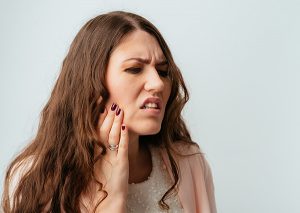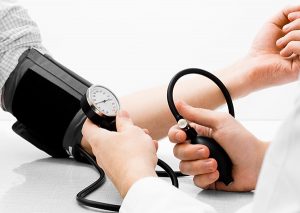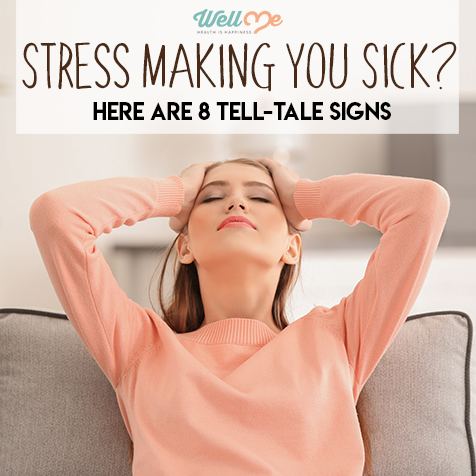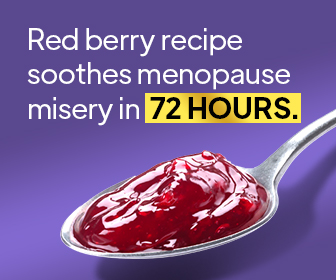Everyone knows that chronic stress is bad for you. But did you know that chronic stress can make you physically ill? Oftentimes we take the separation between body and mind too seriously, not realizing that they are interconnected in a variety of ways.
Indeed, we are only beginning to understand how our emotions affect our physiological well-being. Sometimes stress can even be so consistent and subtle that we don’t realize how it is affecting our lives. Take a look at the below tell-tale signs that your chronic stress might be making you sick.
Fun Fact: Although we think of stress as a negative thing these days, it actually evolved in order to help us react to dangerous situations with more speed and strength.
Low Energy and Fatigue

People who are chronically stressed tend to sleep poorly. Even people who fall asleep okay might be having fitful sleep. Or, maybe you’re not having sleep problems at all, but you still feel fatigued. Because stress tends to trigger fatigue anyway, you could still feel low energy or tired much of the time from too much stress.
According to a study published in July of 2011, perceived stress and higher fatigue are often connected. It is hypothesized that tension that lasts a long time (as it happens with chronic stress) is what contributes to this chronic fatigue. The study looked at 2,483 adults, roughly half of whom were men and half were women. It concluded that fatigue was the main symptom associated with perceived stress and perceived health status.[1]
This study also suggested that physical issues that come from stress (namely tension combined with immune system activity being in a “higher gear” over a long period of time) is causing the body to be expending more energy. Thus, you feel more tired more often.
Dental Problems

You may have already noticed yourself clenching or grinding your teeth when something stresses you out. But did you know that you might subconsciously be doing it at night as well? If this is the case, it could be more serious and detrimental to the health of your teeth than you thought. This is because you may be grinding your teeth throughout the night, causing damage without even realizing it.
According to one Japanese study of 76 individuals in 2011, people who have bruxism (the name for excessive jaw clenching or teeth grinding) were found to have higher levels of a stress hormone (chromogranin A levels) in their saliva. In this study, stress was triggered by doing math problems. Those who chronically grind their teeth or clench their jaw had significantly higher levels of the stress hormone afterwards than those who don’t grind their teeth. In other words, people who are sensitive to stress also have sleep bruxism.[2]
Grinding your teeth or clenching your jaw can be a big problem because it can lead to dental issues. These issues may include cavities or fractures in your teeth which carry a hefty price tag when you need to take care of them. Some people don’t even know they have sleep bruxism until they begin noticing these odd dental problems.
Weight Gain

If you are stressed over a long period of time, a hormone called ghrelin will likely start increasing in its levels. This hormone triggers hunger, making you simply want to eat more than usual. Of course, the more food you eat, the more likely it is that you’ll gain weight.
According to a 2014 review of eating habits and stress published in Frontiers of Psychology, the hormone in question is a glucocorticoid. The study explains that glucocorticoids help your body react to stress when it is dealing with physical stress because you need to be able to replace the calories you have lost. With psychological stress, however, your body reacts the same way even though you aren’t undergoing the physical, calorie-burning reaction to a physical threat. This means you are told by your body to eat more even though it probably won’t actually help your health.[3]
Worse yet, there seems to be a correlation between eating high-calorie snacks or foods and chronic stress. In other words, not only is your body telling you to eat more food, it’s also telling you to eat worse food. Higher calorie foods often take the form of fried foods or sweet desserts rather than nutrient-rich healthy foods. This makes the situation even worse for a person with chronic stress.
Fun Fact: One common myth is that if you don’t have any symptoms of stress then you aren’t stressed. In reality, however, people often don’t notice symptoms of stress for what they are until it gets worse.
Luckily, there are some ways to feed your cravings without harming your body. It takes a little planning, but ultimately it is worth the effort. You simply have to do some research to find out which comfort foods can be made into healthy snacks and then make conscious choices at the supermarket.
High Blood Pressure

It’s no secret that stress causes a rise in your blood pressure. A higher blood pressure has a very real purpose in terms of helping you through a physical threat — it makes your body more ready to react quickly to either run or to fight the threat (the fight or flight response). As such, higher blood pressure is not unhealthy when it is for a short period of time. The real problems arise with chronic stress and therefore chronically high blood pressure.
According to one review from 2008 that was published in HHS Public Access, your body uses blood pressure to distribute energy to the organs that will most help you with fight or flight. The review also explains that chronic stress leads to a greater tendency toward responding to any stress with a vascular (related to blood and blood pressure) response. This causes your heart to have to work harder, which eventually damages your arteries and causes plaque to form.[4]
Until you’re able to find a way to relieve your stress (the cause of the blood pressure), some of the following techniques may help relieve high blood pressure:
- Lose weight (if you’re overweight)
- Regular exercise
- Eating healthier
- Reducing the amount of sodium in your diet
- Don’t drink too much alcohol
- Stop smoking (if you’re a smoker)
- Reduce the amount of caffeine you take in
- See your doctor on a regular basis
Aching Joints and Muscles

When you are experiencing chronic psychological stress, all your body is going to want to do is find a way to heal itself. The defense mechanisms in your body are looking for something to fight off, and this can often lead to good cells in your body being attacked. This causes inflammation and joint pain, especially if you already have arthritis.
If you already have a disease such as rheumatoid arthritis, celiac disease, or lupus, your symptoms could be worsened by chronic stress. According to a review in and issue Autoimmunity Reviews from 2008, autoimmune disease could even be triggered by chronic stress.[5]
Pain in your muscles is also not an uncommon symptom of chronic stress. This comes from your muscles’ natural reaction to stress, which is to tense up. In the worst case scenario, the pain could become so bad that it is actually debilitating. Sometimes people experience muscle tension when they are attempting to go to sleep, which can be frustrating and feel counterproductive in combating anxiety.[6]
Some of the following techniques might help you relieve some of the muscle tension that plagues you when you have chronic stress:
- Deep breathing exercises
- Stretching exercises
- Drinking cherry juice
- Movement, walking, exercise
- Take vitamin D supplements
- Get a massage (or regular massages)
- Soak in hot water (with a bath)
- Aromatherapy with essential oils
- Take valerian (an herb that calms muscles)
- Consume cayenne pepper
- Heat therapy
Stomach Problems

You now already know that stress and autoimmune disorders could be connected. But did you also know that digestive problems are connected to stress – even short-term stress? There is evidence to show that stress has an effect on your gut in both the short term and the long term.
According to one study from 2011 in the Journal of Physiology and Pharmacology, for example, stress has an effect on a large variety of gut-related processes. It affects your gut motility, the paracellular permeability, gut microbiota, mucosal blood flow, visceral sensitivity, and secretion. These are a lot of scientific terms to illustrate the fact that your gut is affected by stress on many levels.
The study concluded that exposure to stress leads to an increased risk in gastrointestinal diseases. These diseases include gastroesophageal reflux disease, peptic ulcer, functional dyspepsia, inflammatory bowel disease, irritable bowel disease, and other GI tract disorders. Stress also leads to greater inflammation as well.[7]
Skin Problems

If you aren’t normally prone to breakouts but you have been developing skin problems lately, it could be due to chronic stress. This comes from the fact that stress leads to an increase in the production of oil in the skin, as well as an increase in the turnover of cells. Because of that, your skin will likely become more prone to acne and breakouts. Some other skin reactions may also occur.
It also has to do with sebum secretion. Cells naturally produce sebum, but these are the same cells that have receptors to stress hormones and sebum production can go into overdrive during periods of stress. [8] Sebum is wax-like stuff that skin makes naturally. While it is a natural process, it can also cause problems if it combines with bacteria, dirt or debris, and dead skin cells. The resulting clogging of the hair follicles is what causes breakouts, pimples, or other blemishes.
While scientists have hypothesized for a long time that stress leads to breakouts, there was not much scientific backing for it. Nowadays, however, there is more evidence of the link between stress and skin problems. One study by Stanford University in 2003 found a distinct correlation between the timing of students’ exams and the timing of their worsening acne, or breakouts.[9]
Headaches

If you suffer from frequent headaches – especially if they are tension headaches – you might be experiencing a physiological response to chronic stress. Many people tend to think that tension in your muscles or other physical responses to stress result in headaches, but in fact it’s the type of thinking itself that comes with stress that actually causes the headaches.
What does that mean, exactly? In one study from 2017 published in the Journal of Behavioral Medicine, the reasons for psychological stress causing headaches were investigated. The study examined 86 participants, 38 of whom suffered from migraines, 28 of whom suffered from tension-type headaches, and 20 of whom served as a control group. Stress was induced by asking the examinees to do math problems.
The study recorded the patients’ self-assessed results: nausea, negative affect, task-expectancies, and headache. This took place every five minutes. The results showed that headache intensity increased alongside irritation, anxiety, and alertness. However, there was no correlation between headaches and cortisol or cardiovascular activity. In other words, it was caused by how the person was feeling rather than their heart activity or increases in certain hormones (i.e. cortisol, which is a stress hormone).[10]
Summary: What Should You Do Now?
There are tons of symptoms that could be caused by chronic stress, but that doesn’t mean that these symptoms are always due to stress. It is therefore important to take a closer look. For example, your headaches or your muscle tension could be caused by something other than stress, so don’t stress out until you are sure!
One main mistake many people make is treating the symptoms rather than the cause of the symptoms (stress, in this case). If you have some of the more serious symptoms, of course, it is important to treat the symptoms and the cause of the issue. Let’s look at some ways for assessing whether your symptoms are really caused by stress below.
Action Steps: Tips for Assessing if your Symptoms are from Stress
- If you are experiencing symptoms that could be caused by stress, make a list of all the symptoms you are having.
- If you are experiencing multiple symptoms that fit into the above categories, it is possible they are coming from chronic stress.
- Start keeping track of your emotional well-being. Are you stressed on a daily or near-daily basis?
- Instead of only addressing the symptoms themselves, try addressing the stress itself or the source of that stress. This can lead to greater well-being in general so you can avoid the physical consequences of stress in the future.
It’s always a good idea to have a better understanding of our health and wellness, and our emotional well-being is no exception. Understanding how your mind works and how you react to stressors could be a great step in the right direction. Ultimately it will lead to a healthier and happier version of yourself.

References
- [1] “Determinants of fatigue and stress.” BMC Research Notes. <https://bmcresnotes.biomedcentral.com/articles/10.1186/1756-0500-4-238>
- [2] “Association between sleep bruxism and stress sensitivity in an experimental psychological stress task.” BIomedical Research. <https://www.jstage.jst.go.jp/article/biomedres/32/6/32_6_395/_article/-char/ja/>
- [3] “Eating behavior and stress: a pathway to obesity.” NCBI. <https://www.ncbi.nlm.nih.gov/pmc/articles/PMC4026680/>
- [4] “STRESS AND HEALTH: Psychological, Behavioral, and Biological Determinants.” NCBI. <https://www.ncbi.nlm.nih.gov/pmc/articles/PMC2568977/>
- [5] “Stress as a trigger of autoimmune disease.” ScienceDirect. <https://www.sciencedirect.com/science/article/pii/S156899720700170X>
- [6] “Muscle Tension, Persistent Tight Muscles, Aches, Pain Anxiety Symptoms.” AnxietyCentre.org. <http://www.anxietycentre.com/anxiety-symptoms/muscle-tension.shtml>
- [7] “Stress and the gut: pathophysiology, clinical consequences, diagnostic approach and treatment options.” NCBI. <https://www.ncbi.nlm.nih.gov/pubmed/22314561>
- [8] “Does Stress Actually Cause Acne?” BioClarity. <https://www.bioclarity.com/pages/does-stress-cause-acne>
- [9] “Stress and Acne.” WebMD. <https://www.webmd.com/skin-problems-and-treatments/acne/features/stress-and-acne#1>
- [10] “Psychological generators of stress-headaches.” Journal of Behavioral Medicine. <https://link.springer.com/article/10.1007/s10865-017-9872-9>
- Fun Fact: “6 Myths About Stress.” American Psychological Association. Accessed 16 March 2018. <https://psychcentral.com/lib/six-myths-about-stress/>
- Fun Fact: “6 Myths About Stress.” American Psychological Association. Accessed 16 March 2018. <https://psychcentral.com/lib/six-myths-about-stress/>








